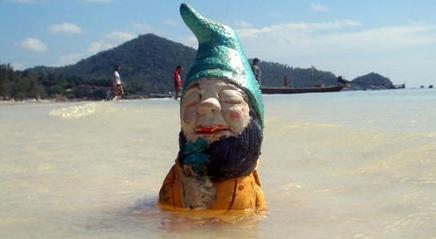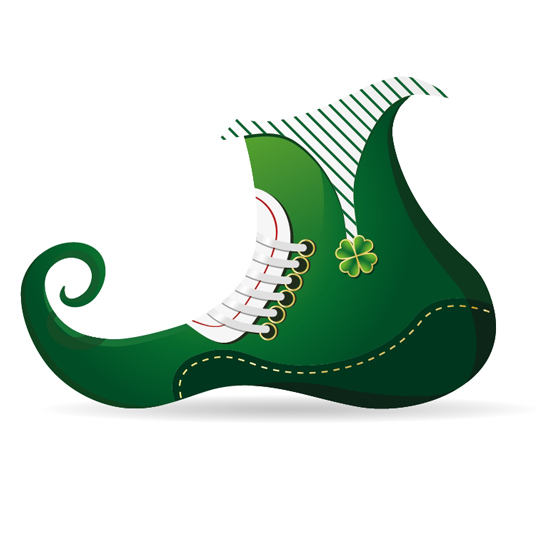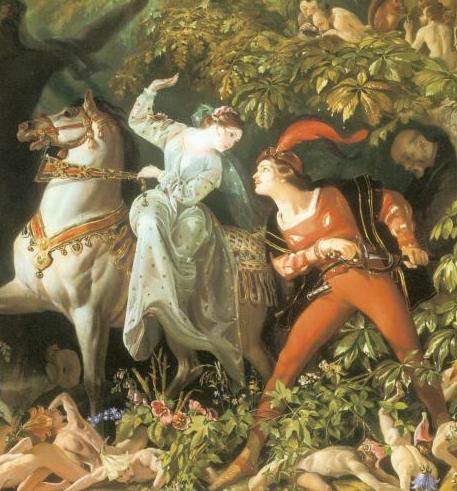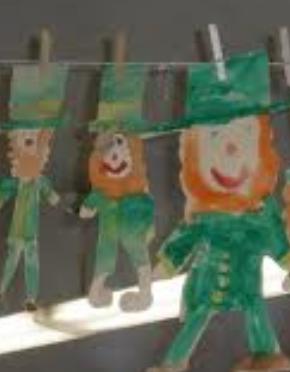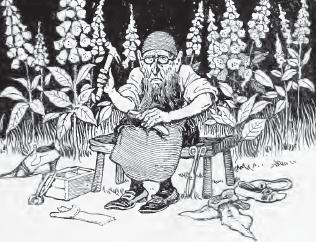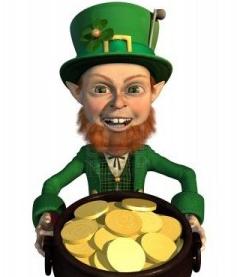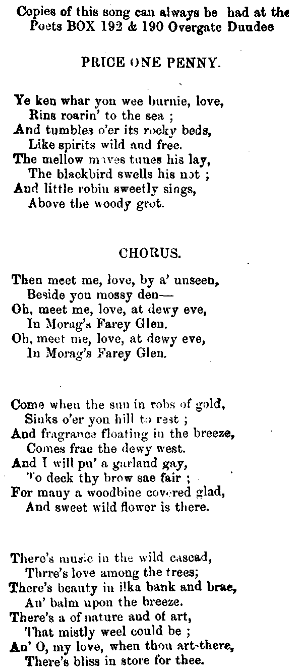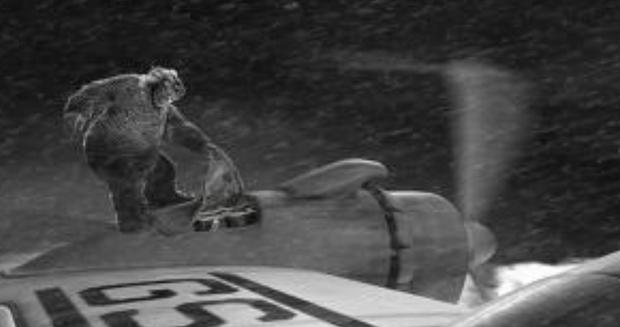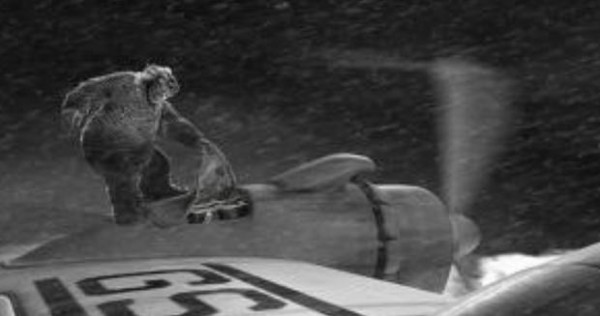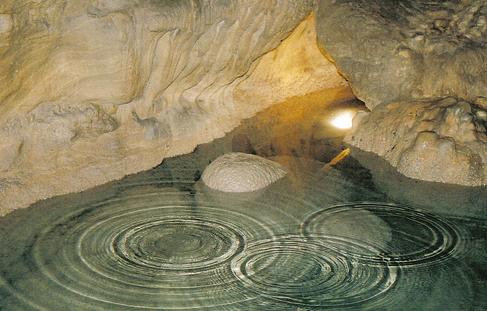Editor’s Note. This is Daniel Binchy’s classic translation of the Saga of Fergus. It is important for Irish fairy-lore because the sprites in §4 are actually lucorpans, probably the ancestor of the leprechaun.
1. There were three chief races in Ireland: the Féni, the Ulaid, and the Gáilni or Laigin. Now there were three royal chiefs contending for the sovereignty of the Féni, viz. Conn Cétchathach [‘of the hundred battles’] and Conn Cétchorach [‘of the hundred treaties’?] and Eochu Bélbuide [‘of the yellow lips’] son of Tuathal Techtmar. Eochu went into exile to Fergus mac Léti king of the Ulaid in quest of support and allies, having inflicted many injuries on Conn before going. For a long time thereafter he remained with Fergus. Eventually Eochu Bélbuide came to his own tribe to offer them terms of peace, but was slain by Asal son of Conn Cétchathach and the four sons of Buide mac Ainmirech —viz. Eochu Oiresach, Énda Aigenbras [‘broadmouthed’?], Ailill Antuarad [‘ill-omened’?] and Tipraite Traiglethan [‘broadfooted’]— and a son whom Dorn the daughter of Buide had borne to an outlander.
2. Of this was sung: ‘An aggressor against us (?) is the son of (?) Dorn …… I doom him to death for it if he can be secured …; or let his mother sustain [responsibility for] his misdeeds. Help (?) shall not support her nor shall her kin-land protect her …… let her advance into bondage and servitude for the whole course of her life. Or I decide her case [thus]: that she (?) be left in thy hand [to be sent adrift] as far as three muirchrecha out to sea, for it is against thee she (?) has offended.’
3. And Fergus’s protection was violated by the slaying of him and his followers. Fergus came with armies to avenge the violation. Eventually his own terms were given to him, and there were paid to him thrice seven cumals, viz. seven cumals of gold and silver, and land worth seven cumals, the land of Conn Cétchorach — Níth was the name of this land on account of the numerous contests (nítha) and dissensions that arose about it subsequently — and a human cumal [bondwoman] to serve him, to wit Dorn daughter of Buide, a sister of Buide’s sons who had violated his [Fergus’s] protection, but it was as pledge for the surrender of a captive that she was given — or it may be that seven cumals had to be pledged for every hand that had slain him [Eochu] — so that it is from this that the penalty for breach of a king’s protection has been fixed at a captive for every five persons concerned; and Conn gave the land in atonement for the liability of his son [Asal], etc.
4. In consideration of this mulct Fergus concluded full peace and went to his own land, bringing with him his bondmaid into servitude. When he had reached his domain he went on to the sea accompanied by his charioteer, whose name was Muena. There they fell asleep on the sea coast. Sprites came to the king and bore him out of his chariot, having first deprived him of his sword. They then carried him as far as the sea, and when his feet touched the sea he became aware of it. At this point he awoke and caught hold of three of them, one in each hand and one on his breasts. ‘Life for life!’ [said the chief dwarf]. ‘Let my three wishes be granted to me’ said Fergus. ‘Thou shalt have anything that is not beyond our power’, said the dwarf. So Fergus chose to ask from him a charm for passing under seas and pools and lakes. ‘Thou shalt have it,’ said the dwarf, ‘save one that I bar to thee: thou shalt not go under Loch Rudraige which is in thy own territory.’ Then the sprites gave him herbs [to put] in his ears, and he used to travel about with them underseas.
[Dogeni fergus ogcoru tarsa nericso & luid doa tir & bir[t] a cumail lais i foghnum. IN tan ronainic fergus a methus luid docum mara sechis & a ara muena a ainm. contuilsit and for bru in mara. dolota(ta)r lucorpain dond rig conidmbert[at]ar asa carpat & bertatar a claidem nuad i tosach. runucsat iarum co rainic a muir(e) conidforcualae o rancatar a cosa a muir. dofiuchtradar la sodain & argab triar dib fer cechtar a da la(i)m & araile for bruinnib. ‘anmain i nanmain’ .i. anacal. ‘tartar mu tri drindro(i)sc’ .i. roga ol fergus. ‘rodbia’ ol int abac ‘acht ni bes ecmacht dun’. atgege fergus fair didiu eolas fobarta fo muirib & lindaib & lochaib. ‘rotbia’ ar int abacc ‘acht aen ar[a]cuillimm airiut loch rudrige fil ad crich ni dechais fai’. Dobertatar didiu in lucuirp luibe dosom ina cluasa(ib) & imtiged leo fo muirib.]5. Some say that the dwarf gave him his cloak and Fergus used to wind (?) it about his head, and in this way used to pass under seas and water. This was the dwarf who sucked his, Fergus’s breasts and caught hold of his cheek as a token of [asking] quarter from him. ‘Why dost thou do that?’ said Fergus. ‘That,’ said the dwarf, ‘is [one of the rules of] fair combat with us.’ Hence comes today [the custom of] taking hold of men’s breasts and cheeks for the purpose of seeking quarter and making appeal (?) to their honour, etc. (Some say that Ogma, Fergus’s servant, went with him when he had parted from his hound, etc.)
6. One day Fergus essayed to pass under Loch Rudraige, leaving his charioteer and his chariot on the brink of the loch. When he dived under the lake he saw there a muirdris, a fearful water-monster which kept alternately inflating and contracting itself like a smith’s bellows. At the sight of it his mouth was wrenched back as far as his occiput, and he came out on land in terror. He said to his charioteer: ‘How do I appear to thee?’ ‘Ill is thy aspect’, said the charioteer, ‘but it will be nothing more (?); sleep will take it from thee.’ Thereupon the charioteer laid him down and he fell asleep.
7. While he slept the charioteer went in the meantime to the wise men of Ulster who were [assembled] in Emain Macha and told them of the king’s adventures and his present condition. He inquired of them what king they would take in his stead, since it would not be proper to have a blemished king in E. M. The decision of the wise men of Ulster was that the king should come to his house, and that beforehand a clearance should be made of all the base folk so that there should be neither fool nor half-wit therein lest these should cast his blemish in the king’s face; and further that he should always have his head washed while lying on his back so that he might not see his shadow in the water. For seven years he was diligently guarded [in this manner].
8. One day he told his bondmaid to wash his head. Thinking that the woman was too slow in carrying out this, he gave her a blow with his whip. Resentment overcame her and she taunted him to his face with his blemish. He gave her a blow with his sword and cut her in two. Thereupon he turned away and went under Loch Rudraige; for a whole day and night the loch seethed from [the contest between] him and the muirdris, and the surge of its waves kept coming on to the land. Eventually he emerged on the surface of the loch, holding the head of the monster, so that the Ulaid saw him, and he said to them: ‘I am the survivor.’ Thereupon he sank down dead, and for a whole month the loch remained red from [the battle between] them.
9. Of this was sung:
King Fergus, son of Léte
Went on the sandbank of Rudraige;
A horror which appeared to him — fierce was the conflict —
Was the cause of his disfigurement.
